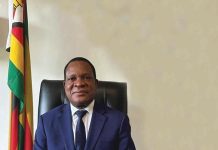Africa-Press – Zimbabwe. ZIMBABWE has scored a major victory on the international human rights stage after ZimRights national chairperson Takesure Musiiwa was elected vice-president of the International Federation for Human Rights (FIDH) at the organisation’s landmark International Congress in Bogotá, Colombia, last week.
The election marks a milestone for Zimbabwe’s human rights movement and affirms the growing global recognition of grassroots activism in the country.
Founded in 1922 and headquartered in Paris, FIDH is one of the world’s oldest and largest human rights federations. It brings together 192 member organisations from 117 countries, united in advancing civil, political, economic, social and cultural rights across the world.
ZimRights’ relationship with FIDH has deepened in recent years.
In 2024, the two organisations jointly produced the State of Civic Space in Zimbabwe Report, which captured the experiences of 67 civil society organisations navigating increasing restrictions on freedoms of expression, association and assembly.
Speaking from Bogotá shortly after the announcement, Musiiwa expressed humility and resolve as he assumes his new global role.
“I stand humbled in service as I take up this important role in the continuation of ZimRights’ long legacy of serving communities. I commit to ensuring that FIDH remains responsive to the needs of its member organisations, amplifies the voices of the most marginalised and defends civic space with courage and conviction,” he said.
Musiiwa joins a diverse leadership team charged with steering FIDH’s agenda for the coming years.
His election places Zimbabwe among the key voices shaping global human rights strategies and advocacy priorities.
ZimRights outgoing executive director Dzikamai Bere described the appointment as
a national and continental triumph.
“Earlier this year, ZimRights launched the diaspora chapter, a global initiative to defend the rights of Zimbabweans wherever they live. This new role within FIDH enables us to embody the principle of solidarity that our people abroad so desperately seek. Through FIDH, we
have truly become global,” he said.
Bere added that the recognition of a Zimbabwean at such a high level reflected the strength and resilience of local movements that continue to fight for justice amid adversity.
FIDH, which works through advocacy, documentation, legal assistance and capacity building, partners organisations worldwide to confront abuses and push for accountability.
Musiiwa’s election, observers say, reinforces the visibility of African leadership within global human rights spaces at a time when civic freedoms face increasing threats.
As Zimbabwe’s human rights community celebrates this achievement, the appointment serves as a reminder that local struggles can echo powerfully on the international stage and that the voices of ordinary citizens remain central to the fight for human dignity and justice everywhere.
For More News And Analysis About Zimbabwe Follow Africa-Press






